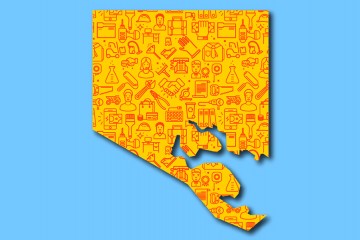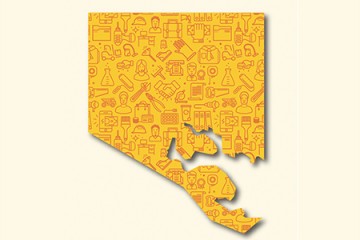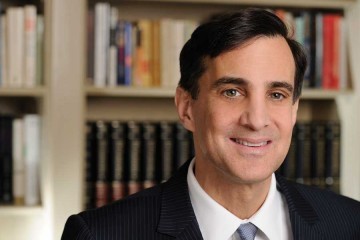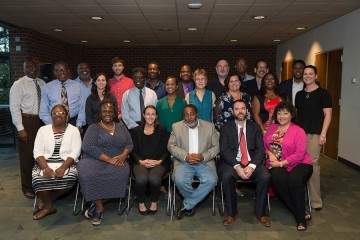Johns Hopkins University and the Johns Hopkins Health System hired 304 workers from Baltimore's distressed neighborhoods and campus-area communities and committed $55.5 million of construction project spending with minority- and women-owned or disadvantaged businesses in the first year of their HopkinsLocal initiative, according to a progress report released today.
In that same period, Johns Hopkins increased by nearly $5 million the amount of money it spent on goods and services from Baltimore-based businesses, the report said.
Johns Hopkins launched HopkinsLocal in September 2015 as a way to use its purchasing and hiring power to help expand opportunities for Baltimore's businesses and residents, especially those living in city neighborhoods with high poverty and unemployment rates, and in neighborhoods around Johns Hopkins campuses.
"We are encouraged by the measurable progress we've made to harness Johns Hopkins economic activity to promote growth and employment in Baltimore," said university President Ronald J. Daniels. "We know there is more to do as we apply lessons learned in the first year to deepen HopkinsLocal's impact and create meaningful and lasting job opportunities in our city."
Each of the new employees were hired into targeted positions, accounting for 43 percent of all new employees in those positions—3 percentage points more than the level Johns Hopkins committed to reach in three years.
"As the city's largest employer, it is not only our desire but our responsibility to have a positive impact on our neighbors," said Ronald R. Peterson, president of Johns Hopkins Health System and executive vice president of Johns Hopkins Medicine. "Helping to strengthen Baltimore's economy through purchasing, contracting, and hiring opportunities is a win-win solution, and working closely with our community, we hope to see even more progress in the years to come."
In the first year of HopkinsLocal, the university and health system committed $55.5 million, or 17.3 percent of construction project spending to minority- and women-owned or disadvantaged businesses. Johns Hopkins has pledged to direct 20 percent of its construction funds to these underrepresented business by fiscal year 2019.
Johns Hopkins also increased by nearly $5 million its purchase of Baltimore-based goods and services in specific purchasing categories such as advertising and marketing, catering, IT services and consulting, and office supplies and equipment. The increase is $1 million less than the $6 million in increased spending Johns Hopkins targeted to achieve by fiscal year 2018.
Beyond procurement spending, Johns Hopkins executed new contracts to purchase goods and services from vendors who have committed to moving to Baltimore or hiring local residents.
At the same time, Johns Hopkins spent considerable time building and implementing the purchasing and hiring infrastructure needed to ensure sustained focus on the city's economic growth. Specifically, HopkinsLocal leaders worked closely with their partners to create a pipeline of candidates for job openings.
HopkinsLocal was conceived largely to harness Johns Hopkins' ability as an anchor institution to promote economic growth and create more lasting job opportunities for Baltimore residents.
"I commend the leadership that Johns Hopkins has exhibited with its strong commitment to help lift our city through HopkinsLocal," said Baltimore Mayor Catherine Pugh. "While there is still more work to do, Johns Hopkins has made demonstrable progress that serves as an example to Baltimore's business community."
Shortly after the launch of HopkinsLocal, a number of Baltimore businesses led by Mike Hankin, president and chief executive officer of Brown Advisory, sought similar ways to create opportunities in the city.
Working with Johns Hopkins to develop or refine existing economic inclusion programs within their organizations, 24 companies and their leaders, including co-chair Calvin G. Butler Jr., CEO of BGE, T. Rowe Price, Under Armour and Whiting-Turner, joined Johns Hopkins in committing to increase their investment in Baltimore over the next three years as part of the new BLocal partnership.
The complete HopkinsLocal progress report is available online in PDF format.
Posted in University News, Community
Tagged community, baltimore, hopkinslocal












